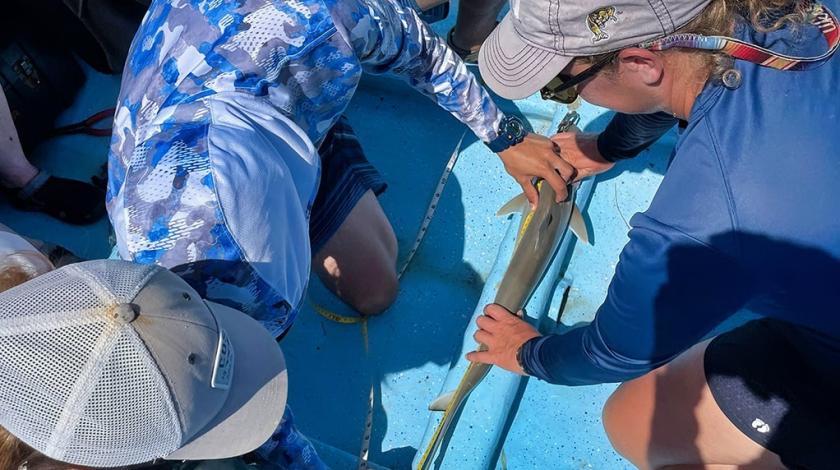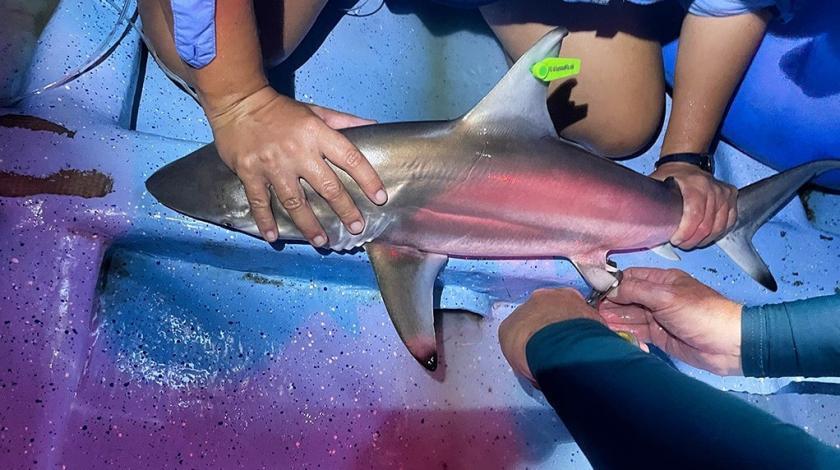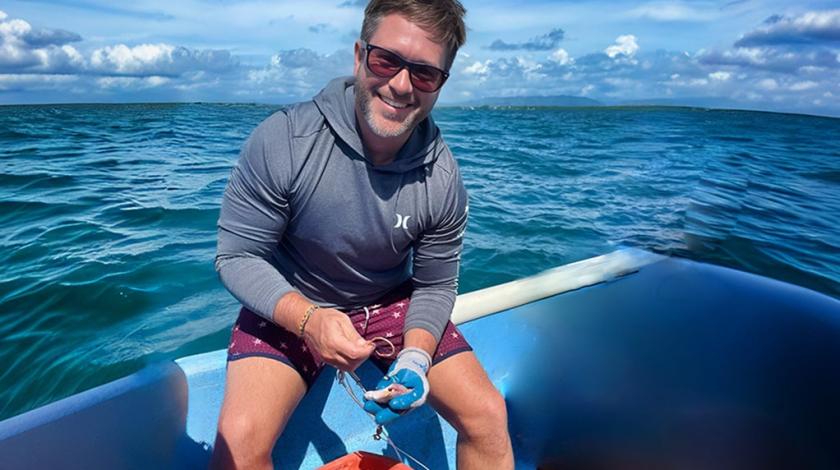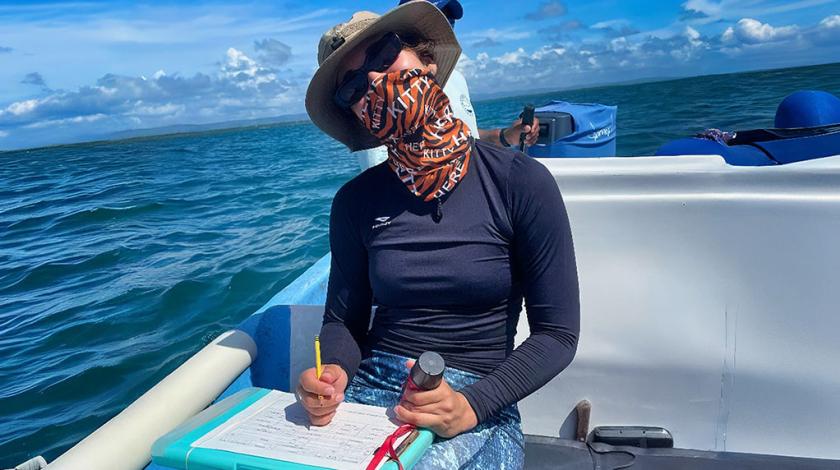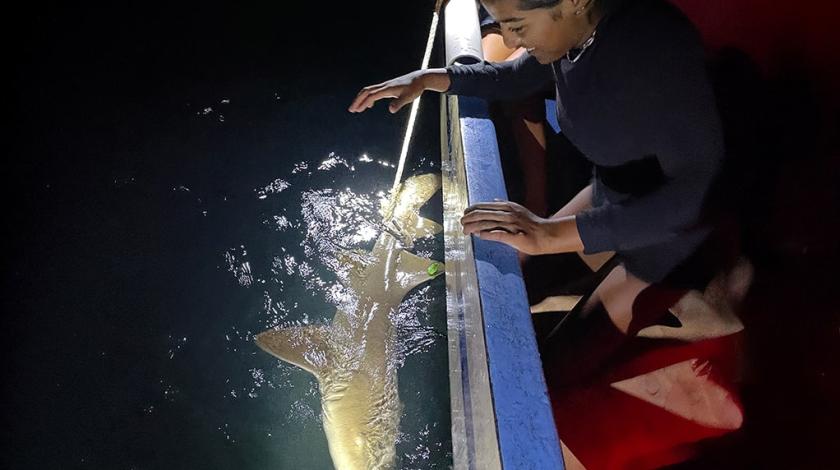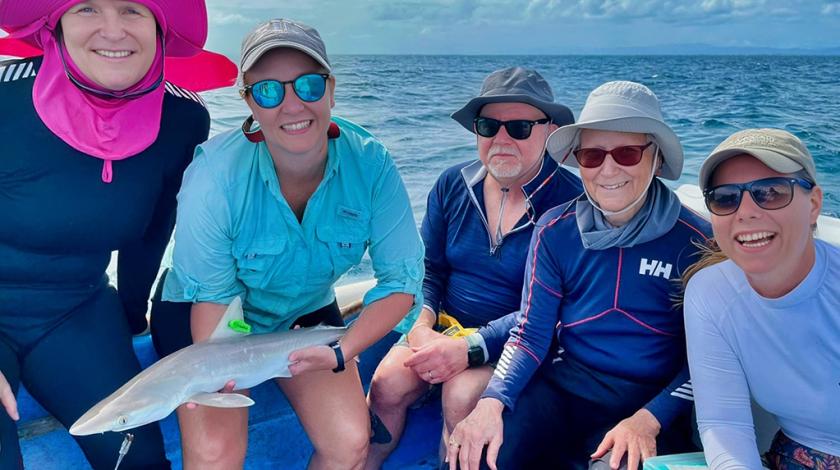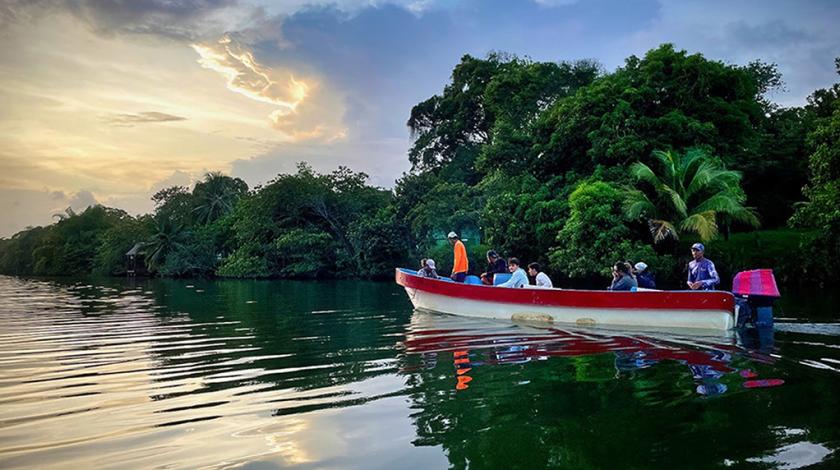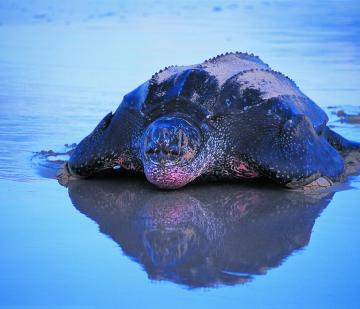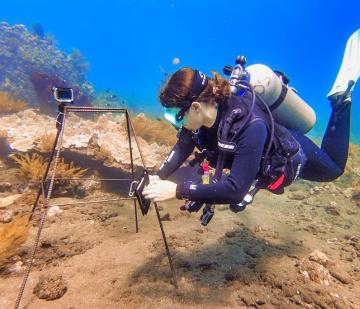BOOK WITH A $500 DEPOSIT
Shark Conservation in Belize
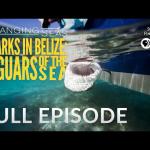
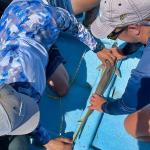
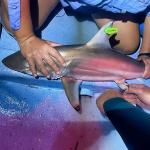
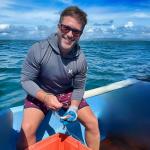
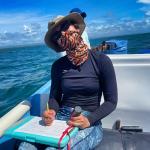
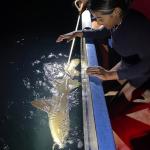
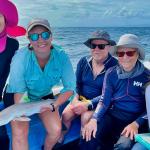
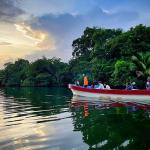
In the heart of a Belizean fishing community, you will help a team of researchers and shark fishers monitor the relative abundance of shark species along the coast while learning about the innovative ways these two seemingly opposites have worked together to monitor and reduce shark landings.
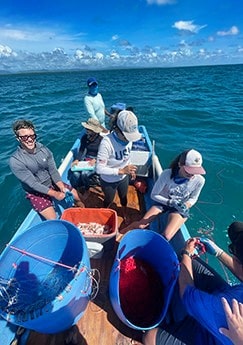
Over the last decade, with the help of Earthwatchers, this expedition has helped monitor shark populations in and out of marine reserves around the island cayes of Belize. Resulting data contributed to the worldwide project Global FinPrint, led by shark expert Dr. Demian Chapman, and has helped increase and improve protected areas for sharks around the country’s remote atolls. Now, as the atolls have become protected and our monitoring indicates an increase in abundance, we are undertaking our next research objective: monitoring the relative abundance of shark species along the coast.
This expedition is as much a cultural experience as a scientific one. You will be hosted by a fishing family and fed delicious, homemade Belizean cuisine while integrating into the hustle and bustle of a working fishing community as we team up with local fishers to conduct our surveys. Primarily surveying at night, you’ll experience the serenity of being on a moonlit ocean, where you will learn how to deploy the fishing gear and equipment used to catch, tag, and release the sharks.
When we aren’t fishing, we’ll explore the world’s first Jaguar preserve, Cockscomb Basin Wildlife Sanctuary, go crocodile spotting at a nearby creek, clean the village’s public beach, and catch up on data entry and analysis.
We believe successful, effective management and conservation come from the ground up and start with inclusivity. Working with fisherfolk to achieve research objectives has reduced fishing pressure on sharks by diversifying fisherfolk income. It has increased community engagement in science, shark conservation, and fisheries management. Join our team to discover what makes this community so special while enjoying all the beauty Belize has to offer.
Learn more about our work together in PBS’ Changing Seas episode: Sharks in Belize: Jaguars of the Sea.

See what past Earthwatchers have been up to on Fishers4Science’s Instagram Earthwatch Highlights.
.
A Typical Itinerary
- Day 1: Meet your team, introduction to Riversdale and accommodations
- Day 2: Introduction to research and training day
- Days 3–6: Deploy coastal longline survey (fishing for sharks)
- Day 7: Recreational day
- Day 8: Early morning departure
HOW YOU WILL HELP
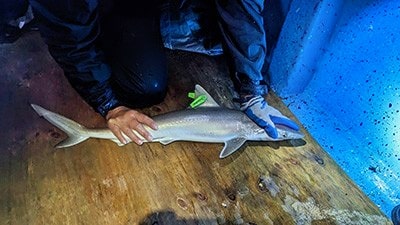
TAG SHARKS TO MONITOR SPECIES AND ABUNDANCE IN COASTAL WATERS
Volunteers will deploy and retrieve the standardized longline. Upon checking the line, the team will take DNA samples, measure, and tag each shark before releasing them.
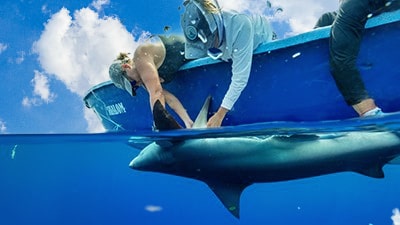
TRACK MOVEMENTS OF SHARKS AT A SPAWNING AGGREGATION SITE
Volunteers will deploy drumlines to capture sharks that frequent a mutton snapper aggregation site. Sharks will be fitted with an internal acoustic transmitter to track their movements within the area.
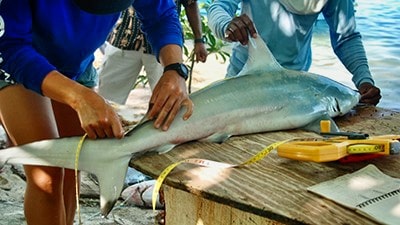
COLLECT LIFE HISTORY DATA AND MONITOR SHARK LANDINGS
Belize has an active shark fishery, and volunteers who visit during the fishing season will visit fishing camps to collect important maturity data from landed sharks and help monitor shark landings.
Field conditions and research needs can lead to changes in the itinerary and activities. We appreciate your cooperation and understanding.
.
FEEDBACK & QUESTIONS
5 Reviews on this Expedition
GET EARTHWATCH NEWSLETTER
Bi-weekly announcements, new expeditions, and updates on our impact around the globe.
